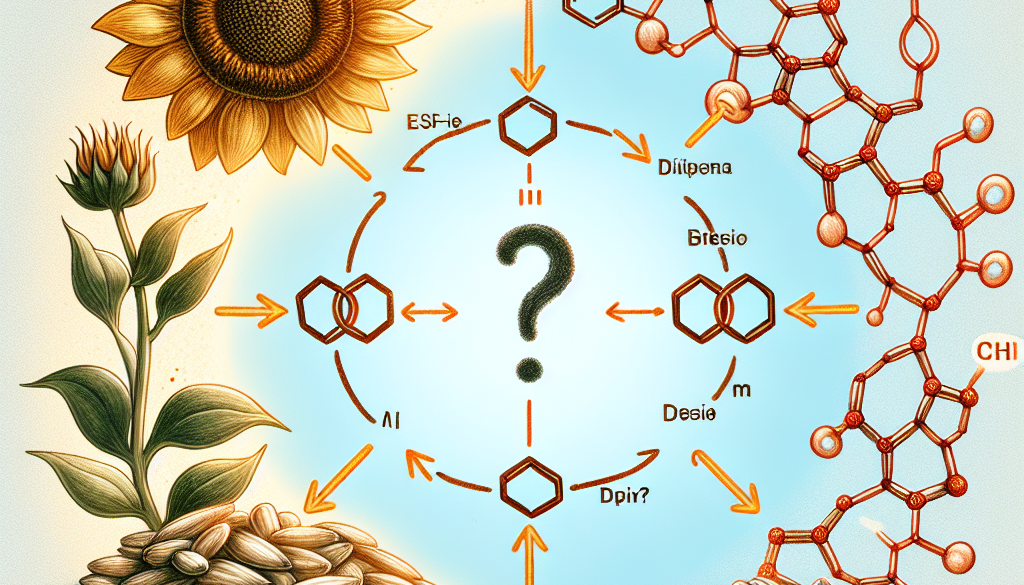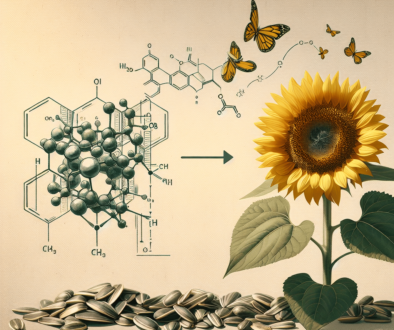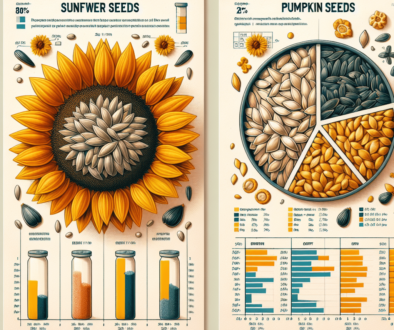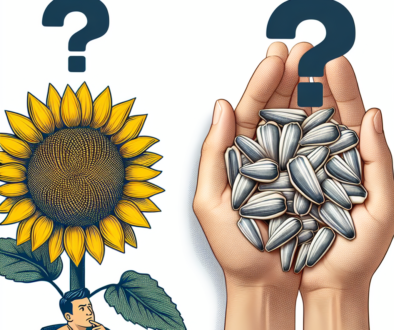Is Sunflower Seed Protein Inflammatory?
-
Table of Contents
- Sunflower Seed Protein: Inflammatory or Health-Boosting Powerhouse?
- Understanding Inflammation and Its Impact on Health
- The Nutritional Profile of Sunflower Seed Protein
- Is Sunflower Seed Protein Inflammatory?
- Scientific Studies on Sunflower Seed Protein and Inflammation
- Comparing Sunflower Seed Protein to Other Plant-Based Proteins
- Incorporating Sunflower Seed Protein into Your Diet
- Conclusion: The Verdict on Sunflower Seed Protein and Inflammation
- Discover ETprotein’s High-Quality Sunflower Seed Protein
Sunflower Seed Protein: Inflammatory or Health-Boosting Powerhouse?
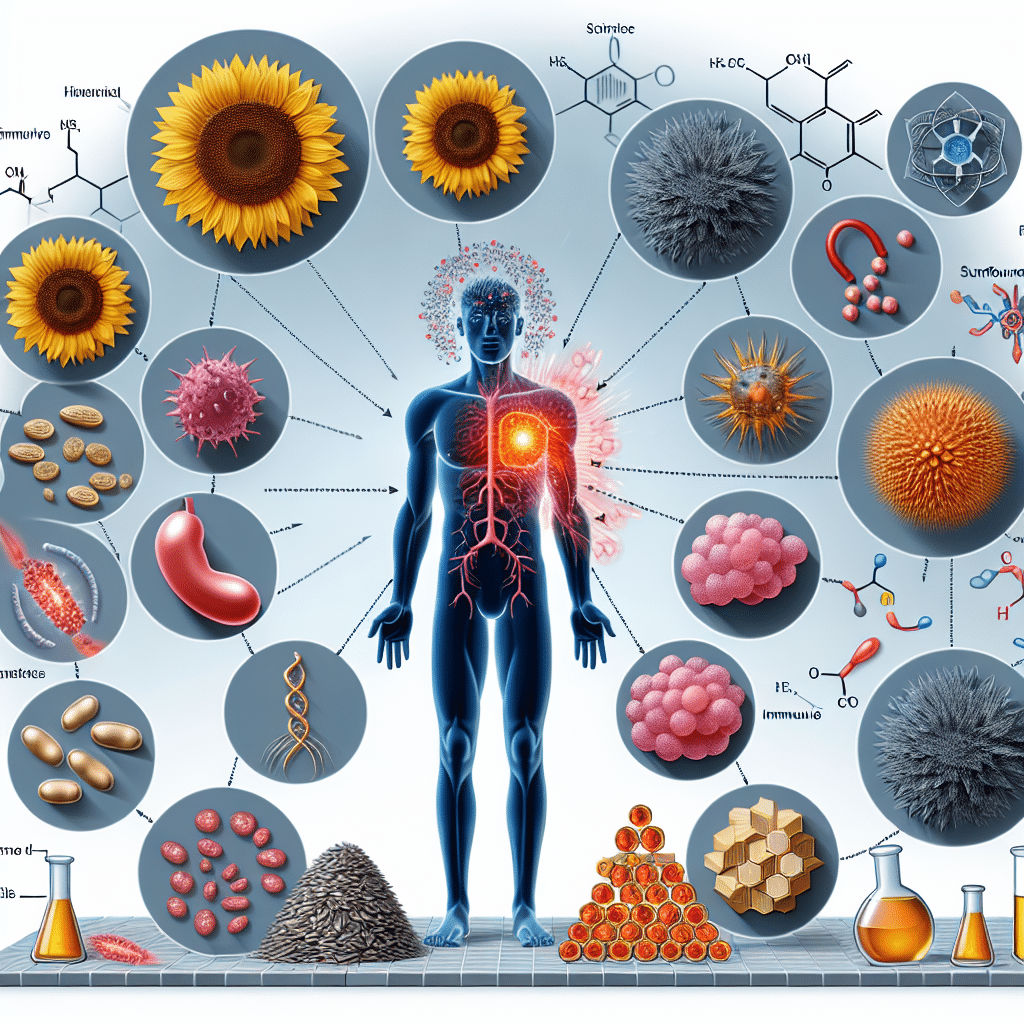
Protein is a crucial macronutrient in our diet, and with the rise of plant-based nutrition, alternative protein sources like sunflower seed protein are gaining popularity. However, with this shift comes the question: Is sunflower seed protein inflammatory? This article delves into the science behind sunflower seed protein and its effects on inflammation, providing a comprehensive look at its health implications.
Understanding Inflammation and Its Impact on Health
Inflammation is the body’s natural response to protect itself against harm. There are two types of inflammation: acute and chronic. Acute inflammation is the immediate, short-term response to an injury or infection, which is essential for healing. Chronic inflammation, on the other hand, can lead to various health issues, including heart disease, diabetes, and arthritis.
Chronic inflammation is influenced by several factors, including diet. Certain foods can exacerbate inflammation, while others can have anti-inflammatory effects. Understanding the inflammatory potential of sunflower seed protein is essential for those looking to manage inflammation through diet.
The Nutritional Profile of Sunflower Seed Protein
Sunflower seeds are a rich source of nutrients, including protein, healthy fats, vitamins, and minerals. Sunflower seed protein is extracted from these seeds and is increasingly used as a plant-based protein supplement. It contains essential amino acids necessary for muscle growth and repair, making it an attractive option for vegetarians and vegans.
- High in Vitamin E, which has antioxidant properties
- Rich in magnesium and selenium
- Contains healthy monounsaturated and polyunsaturated fats
Is Sunflower Seed Protein Inflammatory?
When it comes to inflammation, not all proteins are created equal. Animal-based proteins, particularly red and processed meats, have been associated with increased levels of inflammation. Plant-based proteins, including sunflower seed protein, are often considered to have a lower inflammatory impact.
Research suggests that the high content of antioxidants, particularly Vitamin E, in sunflower seeds may contribute to their anti-inflammatory properties. Additionally, the unsaturated fats found in sunflower seeds are known to support heart health and may help reduce inflammation.
Scientific Studies on Sunflower Seed Protein and Inflammation
Several studies have investigated the effects of sunflower seed protein on inflammation. For instance, a study published in the “Journal of Agricultural and Food Chemistry” found that peptides derived from sunflower seed protein exhibited anti-inflammatory effects in cell culture models.
Another study in the “European Journal of Nutrition” suggested that the consumption of sunflower seeds could be associated with lower levels of inflammatory markers in the blood. However, it is important to note that most research has been conducted in vitro or on animal models, and more human studies are needed to fully understand the impact of sunflower seed protein on inflammation.
Comparing Sunflower Seed Protein to Other Plant-Based Proteins
When compared to other plant-based proteins like soy or pea protein, sunflower seed protein holds its own as a nutritious option. Each plant protein has a unique amino acid profile and varying levels of nutrients that contribute to their health benefits.
- Soy protein is a complete protein but may not be suitable for those with soy allergies.
- Pea protein is rich in iron and arginine but may be lower in methionine.
- Sunflower seed protein offers a balanced amino acid profile and is free from common allergens.
Incorporating Sunflower Seed Protein into Your Diet
Adding sunflower seed protein to your diet can be simple and delicious. It can be found in protein powders, bars, and as a flour alternative in baking. Here are some ideas for incorporating sunflower seed protein into your meals:
- Blend sunflower seed protein powder into smoothies or shakes.
- Use sunflower seed protein bars as a convenient snack.
- Substitute sunflower seed flour in recipes for a protein boost.
Conclusion: The Verdict on Sunflower Seed Protein and Inflammation
In conclusion, sunflower seed protein appears to be a healthful, non-inflammatory protein source, especially when compared to animal-based proteins. Its rich nutrient profile, including antioxidants and healthy fats, supports its potential anti-inflammatory benefits. While more research is needed, particularly in human studies, current evidence suggests that sunflower seed protein can be a valuable addition to an anti-inflammatory diet.
Discover ETprotein’s High-Quality Sunflower Seed Protein
If you’re looking to incorporate sunflower seed protein into your diet, ETprotein offers a range of high-quality protein products. Their sunflower seed protein is characterized by a neutral taste, non-GMO, and allergen-free attributes, making it an excellent choice for those seeking a plant-based protein source.
ETprotein’s commitment to quality ensures that their products, including sunflower seed protein, meet the highest standards. Whether you’re a distributor, trader, or manufacturer, ETprotein can provide the protein solutions you need for your nutraceutical, pharmaceutical, or food and beverage products.
Contact ETprotein today to learn more about their sunflower seed protein and other organic bulk vegan proteins. Experience the benefits of a trusted supplier dedicated to meeting your protein needs with the highest quality products.
About ETprotein:
ETprotein, a reputable protein and L-(+)-Ergothioneine (EGT) Chinese factory manufacturer and supplier, is renowned for producing, stocking, exporting, and delivering the highest quality organic bulk vegan proteins and L-(+)-Ergothioneine. They include Organic rice protein, clear rice protein, pea protein, clear pea protein, watermelon seed protein, pumpkin seed protein, sunflower seed protein, mung bean protein, peanut protein, and L-(+)-Ergothioneine EGT Pharmaceutical grade, L-(+)-Ergothioneine EGT food grade, L-(+)-Ergothioneine EGT cosmetic grade, L-(+)-Ergothioneine EGT reference grade and L-(+)-Ergothioneine EGT standard. Their offerings, characterized by a neutral taste, non-GMO, allergen-free attributes, with L-(+)-Ergothioneine purity over 98%, 99%, cater to a diverse range of industries. They serve nutraceutical, pharmaceutical, cosmeceutical, veterinary, as well as food and beverage finished product distributors, traders, and manufacturers across Europe, USA, Canada, Australia, Thailand, Japan, Korea, Brazil, and Chile, among others.
ETprotein specialization includes exporting and delivering tailor-made protein powder and finished nutritional supplements. Their extensive product range covers sectors like Food and Beverage, Sports Nutrition, Weight Management, Dietary Supplements, Health and Wellness Products, and Infant Formula, ensuring comprehensive solutions to meet all your protein needs.
As a trusted company by leading global food and beverage brands and Fortune 500 companies, ETprotein reinforces China’s reputation in the global arena. For more information or to sample their products, please contact them and email sales(at)ETprotein.com today.

